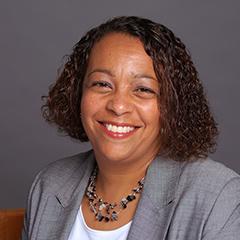International Cooperation and Justice
Overview
In an increasingly globalized and interconnected world, international cooperation is essential to address many of the challenges international communities and nations face in the 21st century. To promote social, cultural, and economic development, justice, and peace, and to address challenges caused by such things as migration, climate change and global pandemics, the international community has developed legal institutions, rules, and activities to ensure these challenges are addressed effectively. Cooperation is critically important to take advantage of the many opportunities offered by an interdependent world. From trade to travel, from investments to educational opportunities, more and more States and people cooperate to advance social and economic progress worldwide.
Lawyers, whether working in government, private practice, corporations, non-profit organizations, or civil society organizations, inevitably deal with institutions and rules that cut across nations.
The International Cooperation and Justice Clinic (ICJC) aims to prepare students to work as lawyers in a globalized world, where legal services are becoming more and more “internationalized.” Working on hands-on projects in partnership with governmental institutions, NGOs, advocacy organizations students, and students from partner law schools, the ICJC is designed to expose students to the realities and challenges of international cooperation. It is expected that the projects will focus on challenges faced primarily in selected Caribbean and African countries.
Projects might include the following:
- Monitoring and advancing the work of the United Nations and regional bodies and its agencies (in particular the UNHCR and possibly the UNFPA)
- Giving specialized advice to international institutions, governments, and human rights organizations on best practices to identify and address challenges, including immigration, cooperation in economic and social matters, access to justice and electoral management and reforms.
- Assessing laws, policies, regulations, and activities that address issues identified with partner institutions to promote global cooperation in striving for social, cultural, and economic development and peace.
Clinic Seminar and Fieldwork
The seminar portion of the clinic will introduce students to the law and theory of international cooperation as well as such practical skills as project research and design, proposal drafting, and interview techniques to support the fieldwork students will engage in. For the fieldwork component, students will be assigned to work in teams to research and work on a concrete project.
Objectives
The Clinic is designed to provide students with a comprehensive understanding of the rules and mechanisms that promote international cooperation. Students will engage in in-depth international legal research, assessment of the effectiveness of international law, human rights law, and examination of how and under what circumstances civil society groups can access mechanisms to enforce the law and effect change. Students will learn transferrable skills and engage in issues that they may encounter in their legal profession.
At the end of the course students will have learned:
- To understand, critically evaluate, and apply the key principles and rules relating to international cooperation, international law and human rights law;
- To analyze the scope and nature of international law and human rights in addressing international cooperation issues in general and in selected areas;
- To assess the effectiveness of human rights law and policies (in general and in the selected areas examined);
- To explore the interaction between law and policies at the international, regional, and domestic level;
- To consider the scope for future developments in international cooperation and policies at the global, regional and domestic level;
- To be able to effectively apply international laws and policies to factual situations in the international and national context;
- To work with high level international officials on addressing government’s actions/inactions;
- To conduct high level, in depth, research on countries’ measures to tackle the issues identified in the projects students will be working on.

